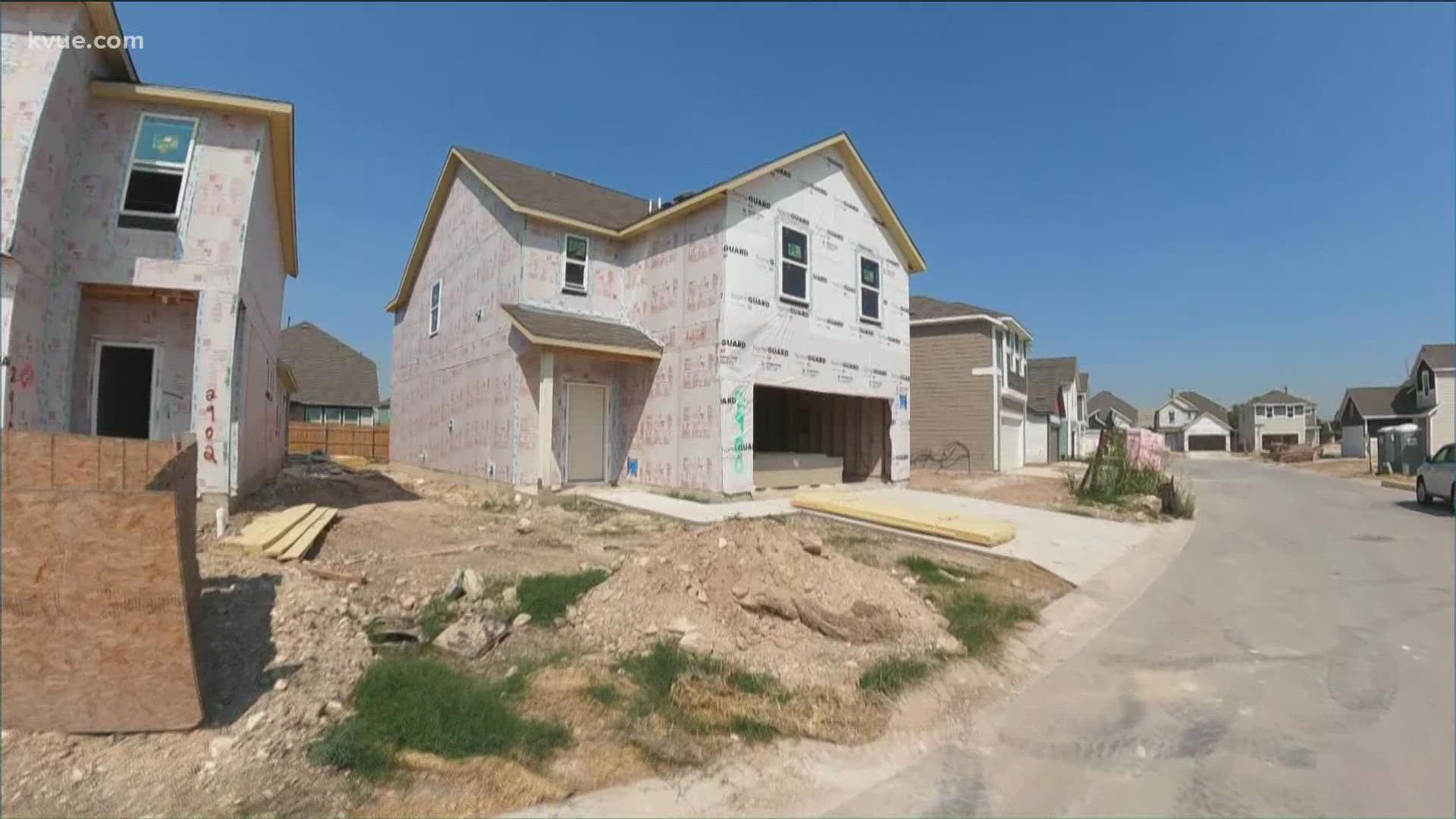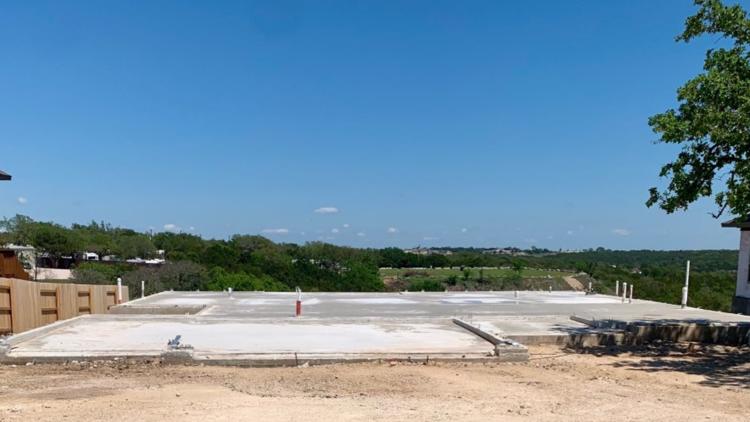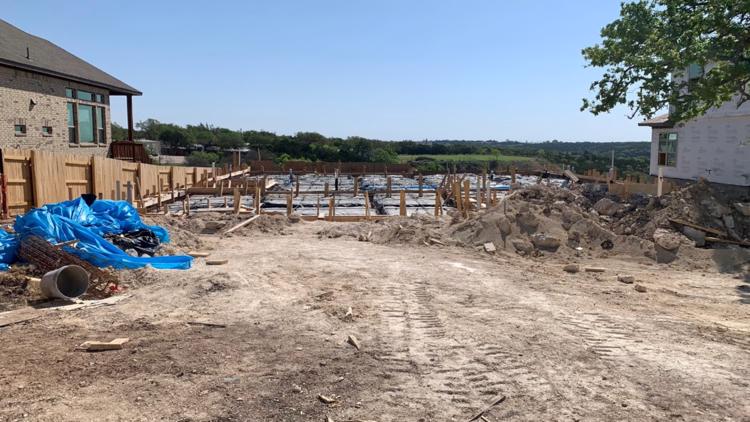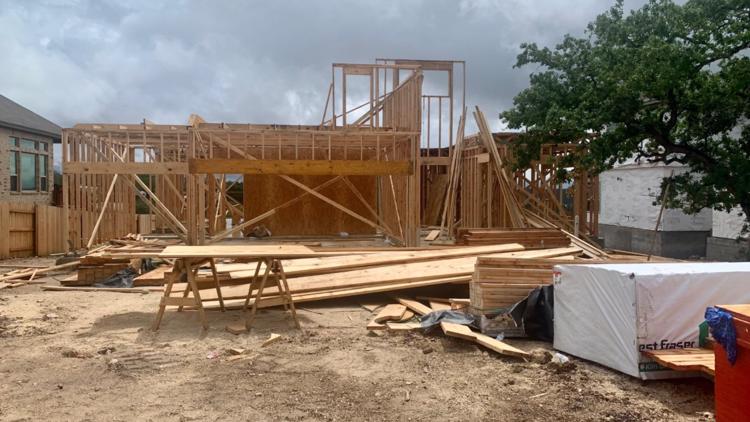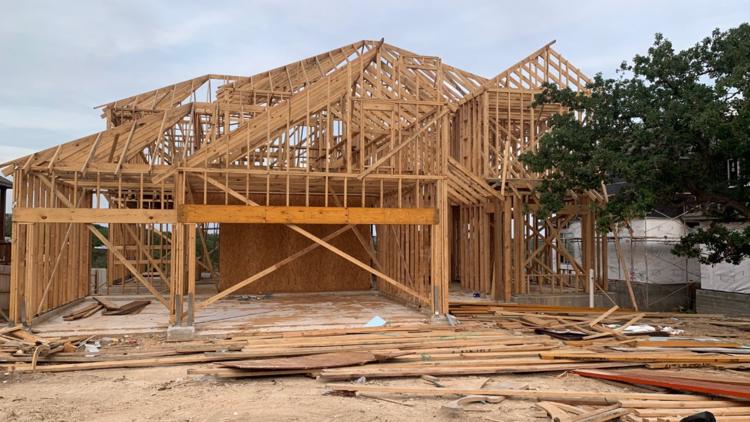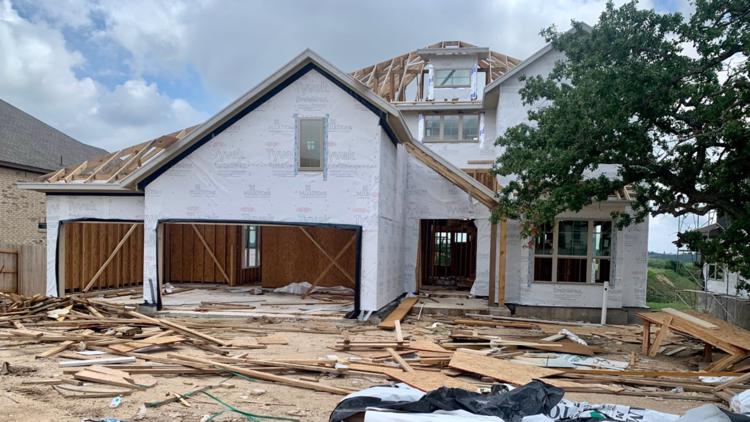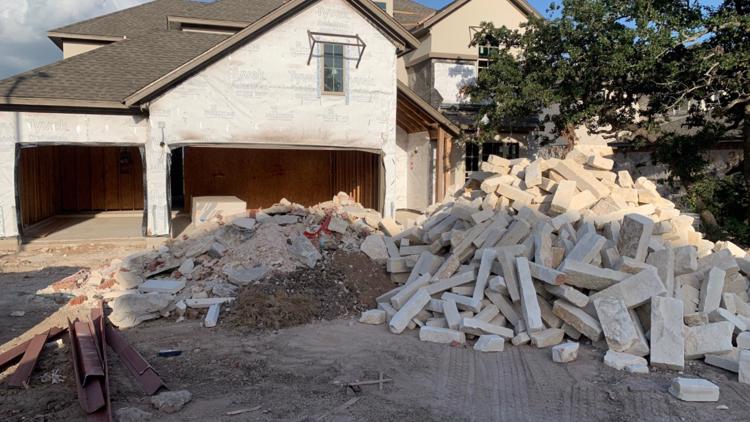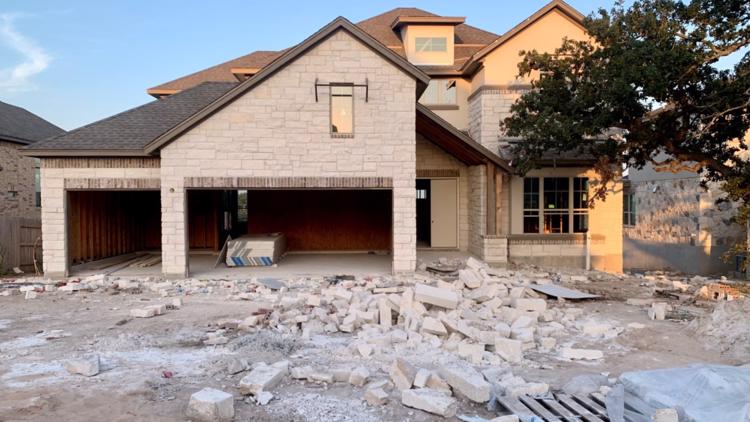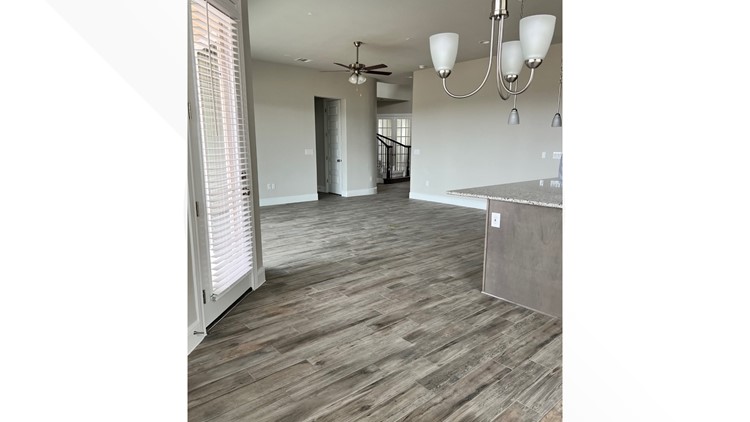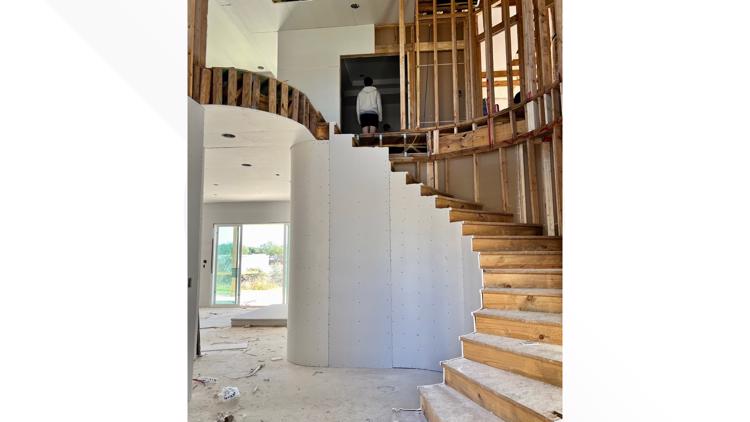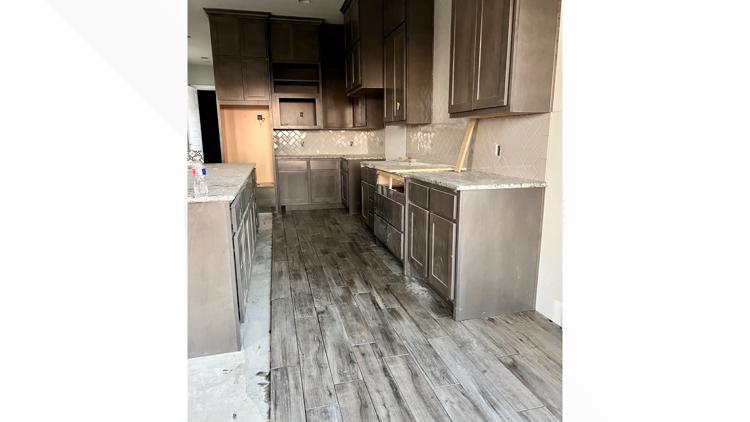AUSTIN, Texas — Buying a newly built home in Austin's hot housing market can be a challenge. Labor and material shortages, demand for housing and COVID-19 all play a role.
Several homebuyers told the KVUE Defenders they've experienced extended delays, were told they had to pay more than the original price and some have even dealt with canceled contracts.
They blame the builders. But those in the home building industry say, "not so fast." They said there are reasons why, now more than ever, builders are using contract clauses to protect themselves.
The number of new homes that received permitting and are under construction so far this year is 11,165. That's according to the Texas Real Estate Center at Texas A&M University analyzing data from the U.S. Census Bureau. Research economist, Adam Perdue, said the Austin metro area is adding newly built homes to the market faster than bigger markets like Dallas or Houston.
But the new home construction boom hasn't benefited all homebuyers, including Jasmine Javadi.
Dream homes turn into a nightmare of unexpected costs for some homebuyers
Finally finding her dream home was emotional.
"I cried the day we signed that contract," Javadi said.
Javadi's perfect home was set to be built on a lot in the Seven Oaks community in Westlake in West Austin.

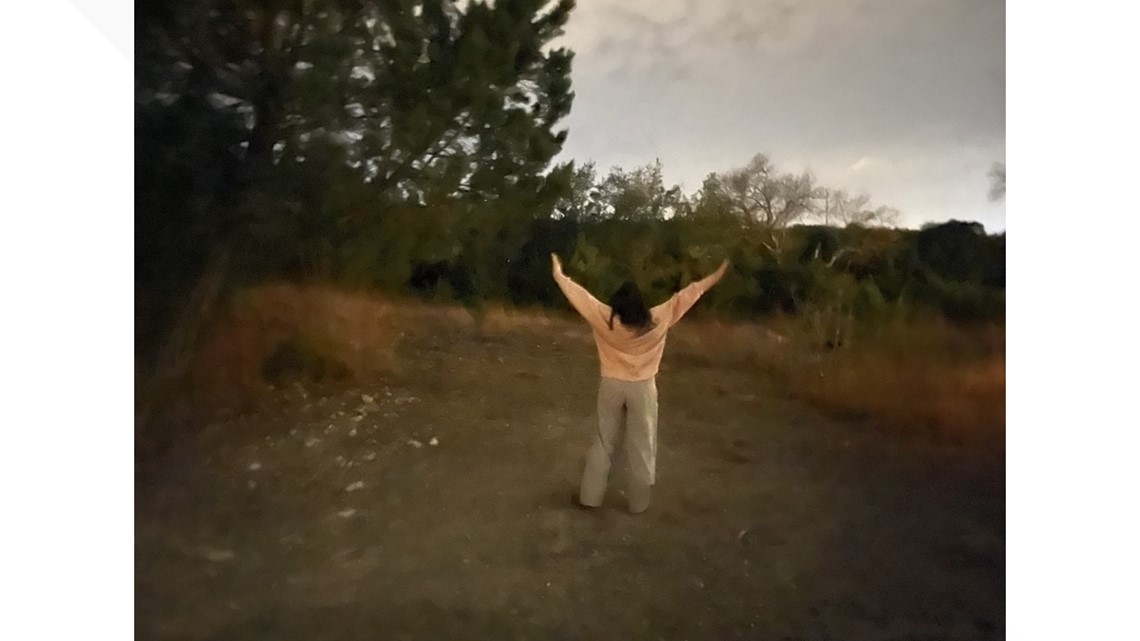
In November 2021, Javadi signed a contract with Drees Custom Homes for $1.2 million.
"We knew that this home, this design, was the home that we wanted," Javadi said.
But two months later, Javadi discovered just how much that dream would cost her — emotionally and financially.
Between January 2022 and the end of March, Javadi said the builder hit her with several price increases. The first was for $40,000. The second was between $90,000 and $100,000. Javadi said the third increase was an adjustment to the $100,000 hike.
"... $140,000 for [an] increase in lumber and other building materials and slab," Javadi said.
The fourth increase was also an adjustment, from $140,000 to $192,000.
"Their reason was that the base price of the home had gone up, which boggles my mind," Javadi said.
She wanted to know how the base cost of her home shot up in 10 days. She asked for an in-person meeting. And after 40 minutes, her contract was canceled.
"I was crying like, 'I'm going to cry now because this is something that you work towards, right?'" Javadi said.
In Leander, Steffanie Hamilton addressed some of the problems she's trying to get fixed in her newly built home.
From a concrete slab to a new build home in Leander
"I'm going to press that. You'll notice that you will not hear anything," Hamilton said of her non-working doorbell.
After waiting 15 months to move in, the mother of six can't believe her newly built house has issues, including no hot water in the primary bathroom and a lock on the primary bedroom door that doesn't work.
But Hamilton's house problems started even before moving in.

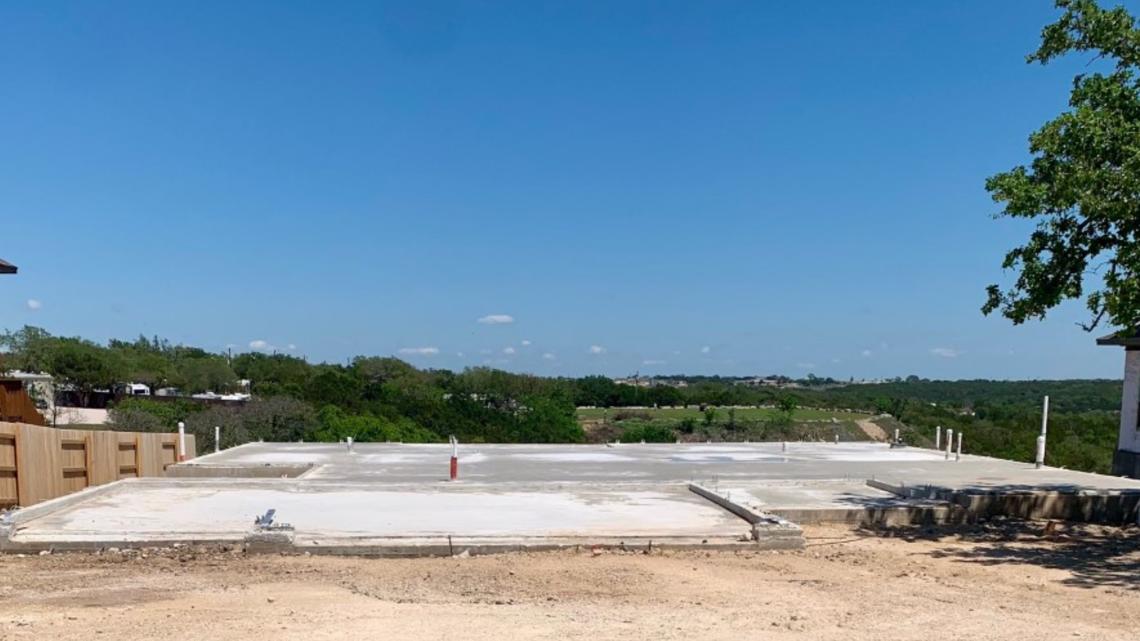
A couple of weeks before closing in March, she said Milestone Community Builders asked for an extra $33,500. The new total is more than $660,000.
If she didn't pay, Hamilton would have lost her earnest money with her home.
"I remember breaking down that day. I was like, 'You know what? We're just going to be out $20,000. They're going to have it. They're going to be able to sell my home that I've invested in, and they're going to be able to sell it for hundreds of thousands of dollars more. And it's all at my cost.' It was very frustrating," Hamilton said.

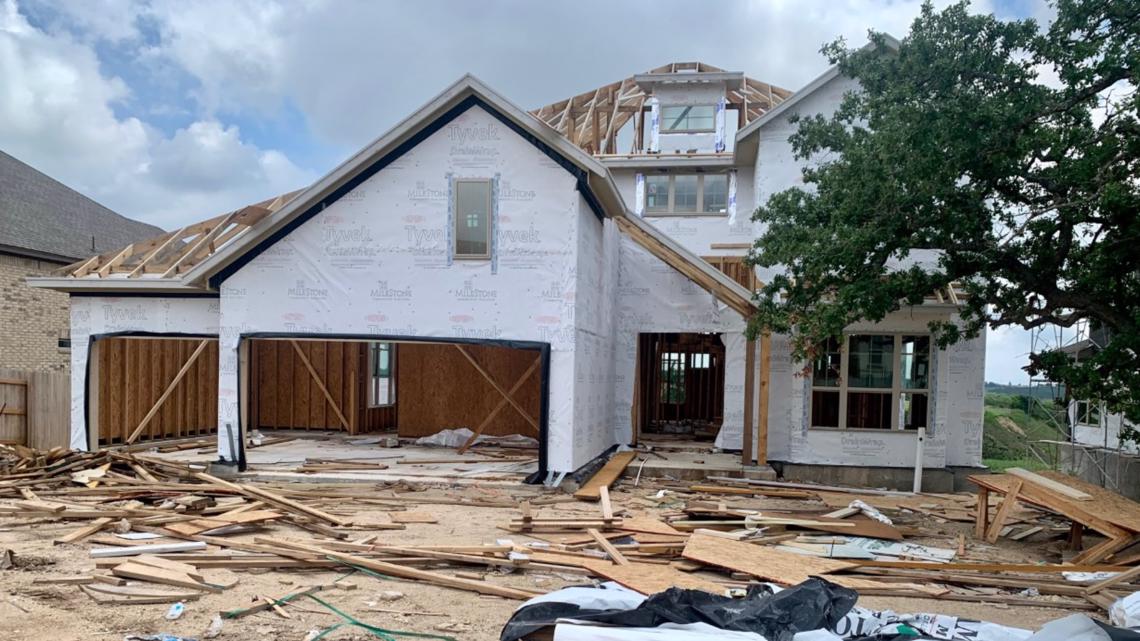
On top of that, Hamilton said Milestone wouldn't provide an itemized list of what exact costs went up.
KVUE reached out to Drees Custom Homes and Milestone Community Builders for a response. A spokesperson for Drees sent the following:
"The home building industry has experienced unprecedented demand along with supply chain issues, which has resulted in unforeseen material shortages, labor scarcity and cost volatility. Additionally, each build is subject to specific customer requests and structural changes, which can result in additional cost fluctuations."
A spokesperson for Milestone also responded:
"We are disappointed to hear that our customer is distressed about the closing of her home. We feel strongly however that due to unprecedented market conditions causing extreme rises in costs, this was a fair deal for the homebuyer. Rather than outright cancel the contract like some of our competitors, we wanted her to enjoy the equity already accrued on her home which we are very confident far exceeded the amount we asked her to pay. At the time of her closing, a similar home in her neighborhood would have been priced approximately $250,000 higher than what she had to pay. The option was also presented for a full refund of earnest money which she declined to take. We look forward to an easing of supply constraints that will bring our market closer to normalcy and present an easier process for all of our customers."
Both turned down requests for interviews.
It all comes down to the contract
So, the KVUE Defenders went to the Home Builders Association of Greater Austin for answers.
Scott Turner is the president.
"We've got a housing problem," Turner said.
Turner also said homebuyers must realize what's happening in the Austin area: builders can't build homes fast enough and, at the same time, demand keeps skyrocketing.
The KVUE Defenders asked Turner about getting itemized lists when costs go up. He said it's reasonable to ask builders for them, but if it's not in the contract, they don't have to.
"It does come down to the contract, and I think there are some practical sides too, you know, disclosing every penny you spent on framing or lumber if you think about the number of homes that a big company here in Austin, like Lennar, will build thousands of homes this year, to have to provide cost data on thousands of homes to anyone who asks, is not practical, right? And that's also not in their contract, right, for those obvious reasons, they can't provide that level of detail to every buyer," Turner said.
Turner said homebuyers should be able to expect transparency and communication.
"But your buyer's question was a fair one, right? Even if the builder was not willing to provide, you know, like here's a receipt, at least the builder should have a dialogue about where those costs went, right?" Turner said.
As for those price increases, Turner said that's why it's important to read and understand the contract before you sign.
Especially now, when more builders are using escalation clauses.
"So, if a cost that goes into the home goes up, then the escalation clause says, 'Hey, I have the right under my contract to pass that cost on to the buyer,'" Turner said.
He gave an example of what many builders are doing.
"They don't say, 'I'm going to contract for this price, and then we're going to sell it for that.' They say, 'We're going to name it at a certain time.' I don't know whether to say whether that's fair or not, right? But frankly, it's almost the only choice that they have, right?" Turner said.
The following is a general example of an escalation clause, as provided by the Texas Association of Builders:
"In the event that there is a price increase in these construction materials categories in excess of ___% from the average of similar materials purchased by Builder in the preceding 30-day period from the execution of this Contract, the excess charges will be passed through to Owner, resulting in an increase in the Total Contract Price. Builder will keep Owner informed of cost variations, and prior to contracting Builder will attempt to verify the price of materials in these categories, thus limiting exposure to Owner for any subsequent price changes."
As seen in Javadi's case, builders are also turning to termination clauses. A termination or cancellation clause allows one or both parties to terminate the contract before it expires, as long as specific terms can be met.
"Instead of tying up this property that I own and I'm building for you, and in a lawsuit or a dispute of any sort, we can just walk away," Turner said.
Austin's housing market is a builder's market
The pandemic, material and labor shortages, increasing demand for housing and low inventory of homes are some of the factors behind issues, like extended delays and escalating prices.
Turner said builders don't have control over those factors. But he recognizes some in his industry may be taking advantage of Austin's hot housing market.
"Oh, it would not surprise me that that's happening because, like I said, the pressures are enormous and time is housing and time is money," Turner said.
Several industry insiders have told the KVUE Defenders about builders canceling contracts to take advantage of escalated values. In other words, builders cancel a contract with one buyer to sell to another buyer for more money.
They would not go on camera.
Turner said that's exactly what happened at one tower in Downtown Austin before the pandemic.
"So, people were just flipping contracts or they would buy it and then sell it the next day to someone else for a $100,000," Turner said.
Turner said there is one type of contract where builders disclose every cost to buyers.
"So, what custom builders will sometimes do is what's called a cost-plus contract, which you are completely disclosing what the cost is to the homeowner. And then you add a margin on top of that like cost-plus 20%. And so, as you might imagine, there is not as much incentive for a builder to control costs if they are just making a margin on every dollar they spend. That is why those contracts usually are only applied to very, very, very expensive home(s)."
Turner said cost-plus contracts are used for homes that cost at least $3 to $4 million.
How you can avoid surprises if you want a new build
If you're thinking about entering the new construction market, Turner said do your homework.
Research builders. Read their reviews. Talk to people in the community where you want to live to learn more about the builder. And hire an attorney to review your contract.
"You probably can't change those terms because the builders are using the same contract for every home they sell. But at least you have to understand how it works and communicate with the builder about that. What happens if lumber goes up?" Turner said.
Hard lessons learned for Javadi.
"We were naïve. We didn't know any better," Javadi said.
Hamilton said she likely won't buy new construction again after her experience with the builder.
"It's just too much of a heartache," Hamilton said.
Javadi's now selling that plot of land and deciding what to do next.
"It was an awful lesson to learn," Javadi said.

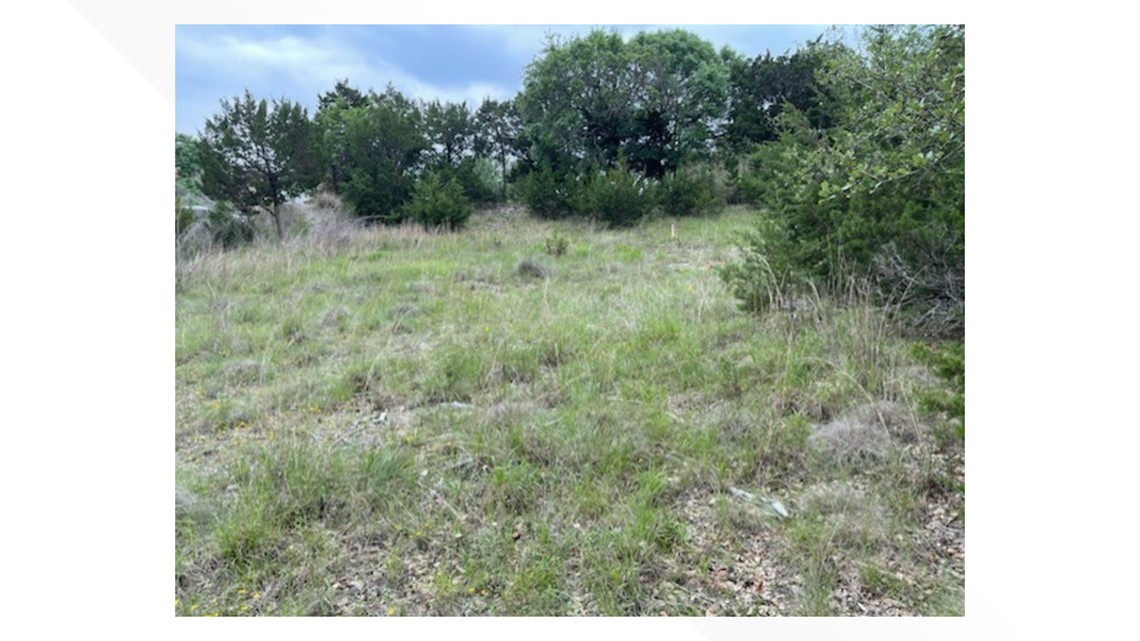
But buyers don't have to enter contracts to have issues with their builders.
It took Dustin Martinez 15 months to move into his newly built South Austin home.
"Houses are coming up left and right. So, why is mine taking so long?" Martinez said.
Martinez said he understood that the pandemic created delays and shortages, but he wished there was better communication and more transparency throughout the process.
"I'd say from the very beginning, just in terms of, like, the timetable that they were giving, just wasn't adding up and the like, I would pass by here and it was always just like a concrete slab for the longest time. Then they finally started putting up the shell. I was like, 'OK, they're making progress.' And then some months go by and nothing. And then you'd see like people on site again and it just ... it was just very delayed with everything," Martinez said.
Three delays and more than a year later, Martinez finally moved into his home in September 2021. He loves it. He just wished he knew what to expect.
"Just be ready for a lot of like, heartache," Martinez said.
John Gusky, the operations manager at KVUE, is another buyer who had such a negative experience with his builder, he walked away from the deal before signing a contract.
He also loves his newly built home in Hutto, but he felt very different emotions the first time he tried to buy last year.
"I was frustrated and angry, and I felt like I was cheated that they weren't being honest with me and that left a foul taste in my mouth," Gusky said.
It started with the builder telling Gusky that they couldn't go to contract ... yet ... even though Gusky purchased a lot in Leander.
"Here's the thing: We have a certain number of lots and we have a certain number of people with reservations on these lots. But we can only do a certain number of houses per month. And so, we have this list and since you just now got the lot, you're at the bottom of the list, you're like 13th or 14th on the list. We're going to do two houses per month," Gusky said.
For the next six months, the price of Gusky's home increased twice a month.
"Every two weeks, it went up by $10,000," Gusky said.
Shocking, but Gusky was fine with that — until it was time to sign the contract in mid-summer. That's when Gusky said the builder changed the terms.
"And then, out of the blue, they contacted us and said we have changed our business plan. We were going to a bidding system now so that home that you wanted on that lot is up for bid. Feel free to make a bid on it if you want to. And I said, hold on a second. We hung in with you guys for six months playing your little game ... because I don't know if they were telling us the truth about, you know, moving up the list and so forth. But we have to, you know, believe them, whatever they say. And so, we played their little game ... moving up the list and finally got to number one, and we are number one is when you're going to change your business plan?" Gusky said.
Gusky walked away from the deal and got his $5,000 back.
Both Martinez and Gusky want other buyers to learn from their experiences.
"People just need to be aware that it's not, it might not be that easy and just because you have a contract doesn't mean you're actually going to get that home," Gusky said.
For Martinez, he worries about buyers in his development still waiting to move in.
"They signed a contract in 2019. I signed mine in 2020. Here we are almost the middle of 2022. How is that acceptable?" Martinez said.
PEOPLE ARE ALSO READING:

